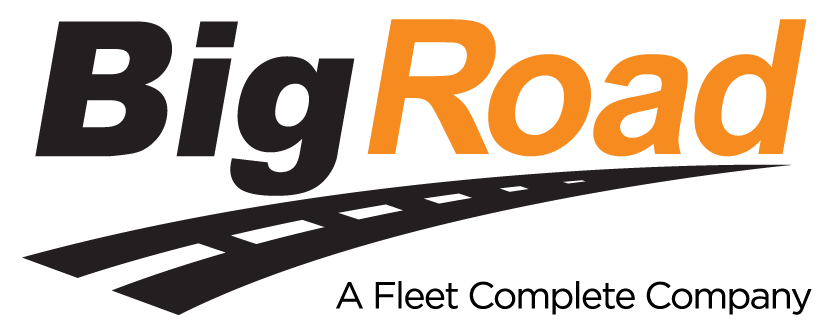The International Fuel Tax Agreement (IFTA) is a reciprocity agreement between the lower 48 states of the U.S. and Canada’s provinces related to fuel usage and tax payments for motor carriers. According to one report, the IFTA saves millions of dollars per year in business admin costs—so it pays to get it right.
In this post, we’ll help you gain a better understanding of IFTA and the implications it may have for your fleet. We’ll also explain how fleet management software can simplify the whole process.
What is IFTA?
Prior to IFTA, drivers needed to go to centers for fuel tax permits every time they entered a new state. As you can imagine, this took up a significant amount of time and effort, especially since the rules are different in every state. The new regulations streamline the procedure.
“Vehicles registered under IFTA receive credentials that allow the motor carrier to go to any IFTA jurisdiction without the need for temporary individual trip permits, which become very expensive over time,” writes Marc Moncion, BigRoad’s in-house head of safety and compliance. A single quarterly report filed with the motor carrier’s base jurisdiction covers all of their travel. The motor carrier’s jurisdiction is responsible for processing their IFTA returns, and apportioning funds to each jurisdiction or requesting net refunds owed to the motor carrier.
Fleet Managers then have to file and pay fuel taxes on time. If you avoid filing your IFTA tax return or paying due taxes, you may be charged interest and penalty, and your IFTA license may be cancelled.
Who is Required to Get the IFTA Licence?
An IFTA license is not required for everyone. You should only get one if you fall under any one of the following categories:
- Your vehicle travels between one or more jurisdictions.
- Your vehicle is motorized, and is used for commercial purposes (even if it’s a recreational vehicle).
- It has two axles and a registered gross vehicle weight of more than 11,797 kg (26,000 lbs) either by itself, or when combined with a trailer.
How Much Does IFTA Registration Cost?
To buy an IFTA sticker, you need to apply for a permit. Once this is done, the IFTA sticker will be sent to you. You’ll find applications on any state or jurisdiction tax website. The IFTA registration fee depends on your vehicle weight, jurisdiction, and location.
IFTA tax can be calculated in five steps:
1. Track the miles you’ve traveled in each state
2. Add fuel purchases
3. Calculate fuel consumed per state
4. Work out taxes owed for each state and province
5. Put it all together
You’ll need to keep track of all of these things. Then, at the end of each quarter, you’ll receive a report in order to determine your fuel taxes to receive the fuel tax refund.

How to Avoid IFTA Penalties and Fines
First, IFTA carriers need to register with the International Registration Plan (IRP) to be compliant with IFTA. IFTA decals (which must be renewed annually) must always be visible to avoid fines.
In terms of ongoing compliance, carriers need to report fuel usage to their home/base state—as opposed to every state they enter. To ensure compliance and correct reporting, carriers are responsible for the following:
1. Submit quarterly IFTA records to your base state/jurisdiction.
2. Once submitted, you are required to either pay taxes or receive a refund if none are owed.
3. Your base jurisdiction will then process your reports and payments from other states/provinces.
Future IFTA fuel tax reports must be submitted quarterly and the information kept for four years from the filing date, or the due date of the tax return. Late or missing information will not be well received. Fleet managers must also allow The Department of Transportation (DOT) to access this information at any time.
How to Simplify IFTA Reporting and Compliance
The IFTA rules have made fuel usage reporting a lot easier. However, there are tools you can use that make reporting and compliance even simpler.
Fleet Fuel Cards
Connect your fuel cards to Fleetio and automatically track your fleet’s fuel expenses. Fuel card transactions are automatically downloaded every time you use it. Metrics like MPG and cost-per-mile are calculated for each transaction. Invalid odometer readings are automatically detected. Integrated fuel cards include Fleetcor, Wex, and Comdata.
Generate mileage reports with BigRoad
When you use BigRoad’s DashLink, you have access to your state-by-state mileage reporting that you can use to facilitate your IFTA reports. The report tracks how many miles you’ve driven in each state, not the specific roads you took. However, if you are interested in a map of your route to see exactly which roads you or your drivers took, you can access that from inside the BigRoad Web App.
You can also generate mileage reports that can be used in preparing your IFTA filings from the report tab in the BigRoad web app.
Aside from simplifying IFTA calculation, fleet management software can help you track, manage, and reduce fuel consumption, which is another way to save on costs—including taxes. Telematics can help you map driver routes more efficiently and manage and monitor driver behavior while pinpointing causes of higher-than-expected fuel consumption.
If you want to use telematics to improve your long-haul logistics business, learn more by requesting our demo.
